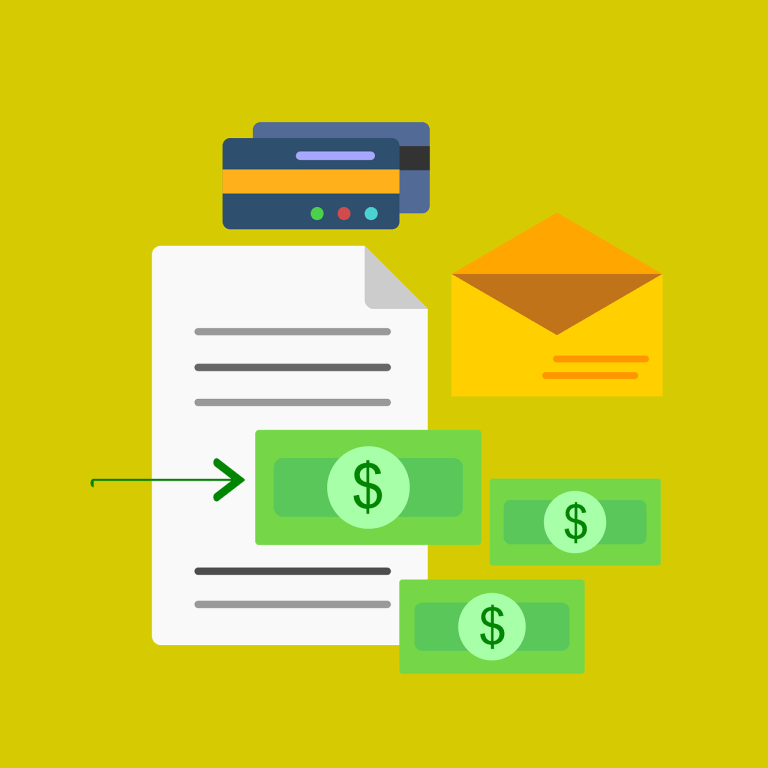Many small businesses, startups, and entrepreneurs are faced with hiring the right person with the proper knowledge and skills to handle the accounting and bookkeeping of their business. This leads to incomplete disclosures. A serious business owner must maintain financial activities to meet government, accounting, and legal requirements. Moreover, with the correct information, decision-makers can make better choices. The more organized your files are, the more valuable they will be for decision-making for a long-term period.
Whether you are a new startup or an established business or need to do bookkeeping for your business, the best bookkeeping and accounting services companies can help you efficiently manage all your bookkeeping and keep books for all your accounts.
Keeping Accounting Books: What are the advantages?
Although keeping accounting books is presented as a compulsory activity, it is a great advantage for companies.
By keeping the books of account effectively, the company is in good standing with the law and tax authorities.
The advantages of keeping accounting books for a business include:
- Meeting legal requirements
- Managing cash flow
- Avoiding errors
- Tracking business performance
- Making better business decisions
The accounting books kept correctly and, above all, up to date allow precise control of accounting activities by a consultant or an accountant if necessary. If there are contradictions in the accounts, the accountant who has done this must give tangible explanations of the risks of being subjected to severe penalties.
Up-to-date accounting books make it possible to know a company’s financial health from its creation to the present day. The accounting books then become documents that greatly assist in the decision for economic security and business development.
What is the benefit of bookkeeping?
Beyond being compulsory, keeping accounting books is a real advantage for companies since it allows accurate control over bookkeeping and accounting activities. Bookkeeping provides an accurate picture of the financial health of a business or organization from its beginning until now. In this way, you can analyze the evolution of finances over the week, month, and year.
Are you wondering whether you should keep your business’s accounts with an accounting firm? Keeping your accounts well is, above all, managing your business well. Any business owner must know what he owes, what he is owed, and what he has gained or lost.
Keeping your accounts well is also challenging (bookkeeping is based on strict and complex rules) and is time-consuming.
There’s more to bookkeeping than just playing by the rules. This is how it helps your company:
- Compliance: Maintaining accurate records helps avoid trouble with the tax authorities and save money.
- Make Informed Decisions: Current financial data can help you monitor your progress, pinpoint areas for development, and make calculated decisions.
- Financial Health: You may track cash flow, profitability, and obligations with bookkeeping, which gives you a comprehensive picture of your company’s financial health.
Is bookkeeping compulsory for a business?
Each business must keep accounting books to record the accounting transactions carried out during the year. Maintaining financial records and supporting documents is mandatory if you operate a business. At the time, shareholders, regulators, and other business owners faced many challenges in bookkeeping and accounting, whether you wanted to process your VAT or your company’s payroll declarations.
Various bookkeeping techniques exist:
- Single-entry bookkeeping: This works well for small companies. There is just one recording of each transaction.
- Double-entry bookkeeping: With this more intricate approach, every transaction is entered twice. This is the approach that companies utilize the most frequently.
- Computerized accounting: This is the most popular method today. Accounting software automates many bookkeeping tasks.
Self-employed people should also maintain track of their finances. They are expected to keep income and expense records. There are software packages that can assist self-employed individuals with their bookkeeping.
Bookkeeping for Small Businesses
Bookkeeping for your business is maintaining all incoming and outgoing money into different classes of accounts and entering them in the general journal. The general journal chronologically and continuously records all the economic operations carried out by the company during a period often called the financial year.
Making an accounting entry records at least two movements: a debit and a credit in the general journal. Note that in accounting, a collection is recorded on debit and disbursement on credit in the bank account. Everything is based on a fundamental principle of double-entry accounting. That is why there is always at least one debit entry line and at least one credit entry line (but there can be multiple debit lines and only one credit for the same operation, or vice versa).
For the same entry, the sum of the entry lines recorded in debit must equal the sum of the entry lines entered in the credit. In accounting terms, this indicates that the entry is “balanced”
The following are essential bookkeeping procedures for 2024:
- Select the Appropriate Accounting Method: There are two primary approaches: accrual basis (which records income as earned and expenses as incurred) and cash basis (which records income as received and expenses as paid). Speak with a tax expert to find out which approach is best for your company.
- Embrace Technology: Cloud-based accounting software makes data entry easier, duties automated, and working with your accountant easier. Well-liked choices include FreshBooks, QuickBooks Online, and Xero.
- Automate What You Can: To reduce human data entry and streamline procedures, look at solutions for automated bank feeds, bill payments, and receipt capture.
- Outsource When Needed: As your company expands, consider outsourcing bookkeeping work to an experienced expert. This will give you more time to concentrate on your main business tasks.
Set up an accounting bookkeeping system.
Good bookkeeping helps a business be well organized. But to have good bookkeeping, you also need to be well organized! There are various approaches:
- Single-part Accounting: Each transaction is only recorded once in the “income and expenditure journal.” This approach may only be suitable for a tiny organization.
- Transfer accounting: protected by copyright, such a system uses carbon-backed checks. The details that are written there are automatically copied and then archived. This approach often needs to be updated since it requires payment by check.
- Double-entry bookkeeping: Each transaction is recorded twice, and one amount is charged to the credit account and another to the debit so that everything necessarily balances.
- Computerized accounting: everything is done automatically, fast, easy, and efficient. This method is popular with the vast majority of companies.
Bookkeeping for the self-employed
As a self-employed person or a small business, you are probably wondering what bookkeeping is all about. Can you do it easily on your own, or should I entrust it to an accountant? In the following, we explain the basics of bookkeeping, why it is valid, and suggest some tools to do it quickly and independently.
The self-employed person is required to have accounting entries in the form of a monthly and cumulative register for income and expenses, which includes the following supporting documents:
- Sales invoices
- Invoices for professional expenses
- Bank statements
- The checks
- Commission statements, deposit slips, and, more generally, any document likely to justify the professional expenditure.
Outsource the bookkeeping of your business.
Source: Cogneesol
It can be a great idea. The company’s expert accountant can then take care of the day-to-day management of accounts, expenses, and financial transactions. Many service providers will take care of bookkeeping, accounting, Payroll, and taxation.
Outsourcing your bookkeeping allows you to:
- comply with accounting and tax rules;
- reduce the costs of the accounting function;
- respect the deadlines for administrative and fiscal declarations and avoid additional expenses linked to delays;
- save time to devote yourself entirely to your job;
- benefit from management indicators to better manage your business.
Here’s how a pro software can help:
- Expertise: Ensure you are following accounting and tax standards, which could save you money in the long term.
- Time Efficiency: Free up crucial time for key company tasks.
- Reduced Costs: Outsourcing can be less expensive than hiring a full-time in-house accountant.
- Meeting Deadlines: Avoid the penalties and late fees of missing tax files.
- Valuable Insights: Access the accountant’s financial experience and advice to improve business management.
Utilities of good bookkeeping for any business:
Keeping up-to-date books regularly and efficiently is essential for any growing business. Not only does proper bookkeeping not only meet the requirements of the authorities and make the appropriate payments promptly, but it also allows:
- Improved Financial Management and Budgeting: Good bookkeeping methods clearly show your income, expenses, and profitability. This allows you to develop realistic budgets, track your progress toward financial goals, and identify possibilities for cost savings or growth.
- Secure Funding and Attract Investors: Potential lenders and investors rely significantly on accurate financial accounts to determine a company’s sustainability. Meticulous bookkeeping indicates your professionalism, creditworthiness, and financial management skills, making obtaining money and attracting investment prospects easier.
- Tax efficiency and less risk of penalties: Detailed and accurate records simplify tax filing. You may determine which tax deductions and credits you are entitled to, ensuring that you pay the correct amount of tax and avoid costly penalties from the tax authorities.
Can I do the bookkeeping myself?
There are benefits and drawbacks to consider.
Advantages of DIY bookkeeping:
- Cost-effective: Accounting software offers a much cheaper alternative to hiring a professional bookkeeper.
- Time-saving: Many systems automate chores such as creating journal entries from your transactions, saving you much time and work.
- Control and Flexibility: You have complete control over your financial data and may access it anytime.
- Reduced Errors: Reliable software can reduce errors by automating calculations and highlighting irregularities.
Image Source
Disadvantages of DIY bookkeeping:
- Time Commitment: While software might save time, bookkeeping requires frequent data entry and reconciliation.
- Risk of Mistakes: Errors in bookkeeping can have serious consequences, so confidence in your abilities is crucial.
Thanks to accounting software, it is possible for a self-employed person or a small business to complete the bookkeeping themselves. However, by calling on a qualified accounting technician, you will save time and limit the risk of errors.
How do you do your bookkeeping by yourself?
As a self-employed person or a small business, using accounting software is the easiest way to do your bookkeeping and accounting at a low cost. With online accounting and bookkeeping software like eBetterBooks, you only have to make transactions (bill your customers and enter your expenses). The software generates the journal entries for you. This software’s best advantage is saving time and money and limiting the risk of errors.
Here’s a breakdown of how you can handle your bookkeeping:
- Choose Accounting Software: Look into options and examine features, convenience, and pricing.
- Set Up Your Accounts: Most software includes a “chart of accounts” that categorizes your income and expenses. Customize it to meet your company’s requirements.
- Record Transactions: Regularly enter all of your sales invoices, vendor bills, and other financial transactions into the software.
- Reconcile Accounts: Check your bank and credit card statements regularly to ensure they match the software data.
Why hire an accounting technician for bookkeeping?
Good bookkeeping helps ensure the success of your business by providing a clear understanding of its financial situation. You will benefit from impeccable service and save time by calling on a professional.
You will save more by hiring an accounting technician rather than dealing with an accountant year round. An accountant will do the audit at the end of the year and help you complete your taxes.
Whatever type of bookkeeping is chosen, the system must be reliable, precise, consistent, easy to use, and understandable to allow easy access to the necessary information at any time. Procedures for checking the accounting entries must be put in place, and first of all, the bank reconciliation, which makes it possible to compare the bank’s entries with those recorded in the accounts. It is carried out at least once a month upon receipt of the bank statement.
Good bookkeeping certainly helps meet legal obligations, but it is also an essential management tool for any business or company. By regularly following your accounts and all financial transactions, you can track your business’s performance in detail and in real time. Hence, you can compare your current results with those of past periods, make forecasts, and make informed decisions.








